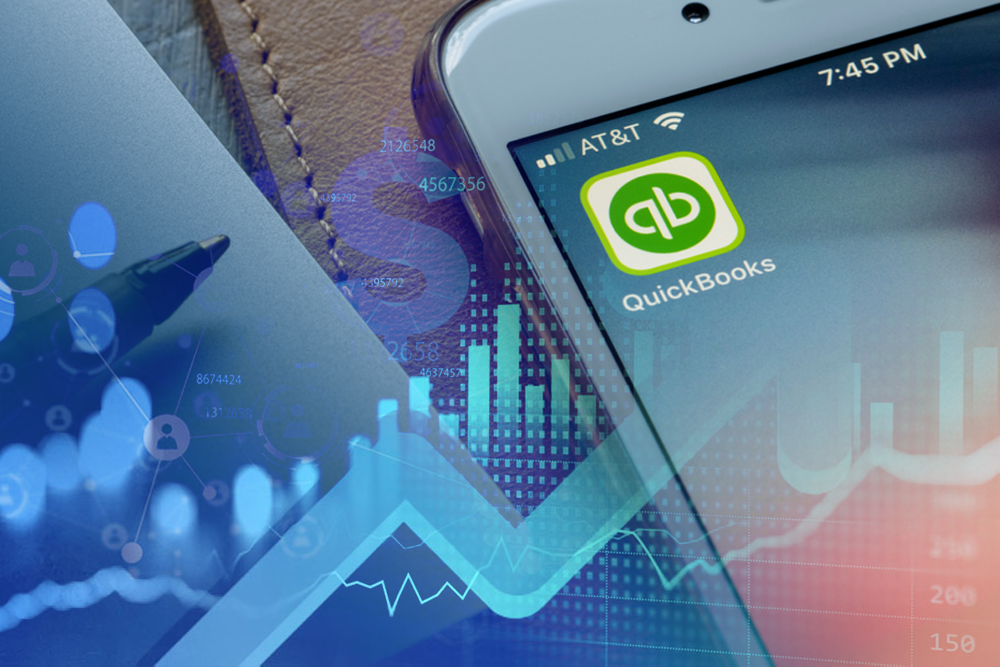
The small business finance software market is diverse. It can tackle anything from your invoicing to payroll, saving you an immense amount of time and money. However, each software brings something different to the table in terms of the services they provide and how they charge for them.
Our accounting software list breaks down the most popular options on the market today, so it’s easy to compare them and choose the right one for your needs.
Small Business Finance Software Benefits
There are many advantages to using finance software for small businesses.
- Efficiency: Small businesses can easily spend 20 hours or more per month manually managing tasks that finance software automates.
- Compliance: Most accounting programs have built-in features such as reporting that make it easy to comply with regulations.
- Access: Whether you’re the type that logs in from home to check on things or operate a remote team, cloud-based accounting software makes it easy to access your data and work wherever you wish.
- Interoperability/ Integration: Good software combines all your financial data and processes by housing it all in a single program or through integrations that pull data as needed.
- Error Reduction: Nine in ten spreadsheets have errors, according to Dartmouth research. Software helps eliminate them, so your numbers are more accurate.
- Financial Savings: All these things mean that small businesses can easily save thousands of dollars or more each year.
If you’re evaluating tools to better manage expenses and projections, explore these cash flow budgeting tools for business owners to strengthen your financial planning and improve operational clarity.
Tips for Choosing the Right Software
Choosing the right software may initially seem complicated because so many options exist. However, once you know what the options are and what the terminology means, it becomes much easier.
Choose Financial Software That’s Designed for Small Businesses
Our list of finance software solutions is already narrowed down to options that work for small businesses. If you continue your search beyond this list, it may be better to avoid enterprise accounting software options designed for large companies with more complex accounting needs, as they’re usually more challenging to use and cost more.
Ensure it has the Features You Need
“Finance” and “accounting” are often used interchangeably in the software market because most finance software includes accounting features. However, “finance” is the umbrella term. Software may include features related to:
- Accounting: Features associated with creating and managing invoices, tracking revenue and expenses, and preparing financial statements are typically included in accounting software.
- Billing and Invoicing: Programs specifically created for billing and invoicing allow you to manage customer information, send invoices, and track payments.
- Customer Relationship Management (CRM): Sometimes, finance software has a CRM component, offers it as an add-on, or allows businesses to integrate their accounting software with their CRM. This makes managing customer data, tracking sales opportunities, and managing customer interactions easier.
- Payroll: Like the CRM component, some payroll management options may come with accounting software or be available as part of an add-on or integration. Examples include time tracking, processing paychecks, and calculating payroll taxes.
- Reporting: Most finance software offers basic reporting capabilities. If you need reports that aren’t often run by small businesses, ask if they’re included or if you can collect the data you need with custom reports.
Evaluate Costs
Finance software usually pays for itself and delivers ROI. However, because there is an upfront investment, it’s essential to consider the expense before you purchase. Most software companies offer free trials. Take advantage of them if you’re trying to decide between two otherwise comparable options.
Consider Onboarding and Support
Some of the accounting software options on our list are so easy to use that you might never need help. However, it’s always a good idea to read first-hand accounts from real customers to see how their concerns are handled or check out the Better Business Bureau rating before ordering.
Check whether training and onboarding are included and how support issues are managed. Some companies also provide online tutorials that can help you troubleshoot on your own.
Make Sure it Works How You Do
You’re more likely to maximize the value of your finance software if the workflows and functions allow you to replicate your current processes closely. A few things to look for include:
- Access: Are you okay with on-premises/ desktop software, or do you want cloud-based software that can be accessed anywhere on your preferred devices?
- Integrations: Does it integrate with software you’re already using or offer integrations to software you might want to use in the future?
- Customizability: Can you adapt features, processes, and workflows to mirror your current work or to make the software more suitable for your company?
- Scalability: Will the software meet your needs in five or ten years? If there’s a chance you might outgrow it and need to move, does the software make it easy to leave?
5 Most Popular Small Business Finance Software Options
Now that we’ve covered the background, let’s look at some of the best small business finance software options.
1. QuickBooks: Best Business Finance Management Software for Freelancers
- Starting Price: $30 per month
- Free Trial: 30 days
- Cloud-Based or Desktop: Both
- Mobile App: Yes
As part of the Intuit family, QuickBooks is one of the industry’s oldest and most trusted names. The QuickBooks Online Simple Start package comes with income and expense tracking, invoices and payments, and general reports, among other things. Advanced tiers come with options like bill management and project profitability tracking. Payroll can be added to any plan.
Those looking for offline accounting software may also want to check out QuickBooks Desktop. However, the company doesn’t actively promote its desktop accounting software. You can get more information about its non-cloud-based accounting software by connecting with its sales team.
2. Xero: Small Business Finance Software for Advanced Features
- Starting Price: $13 per month
- Free Trial: 30 days
- Cloud-Based or Desktop: Cloud-Based
- Mobile App: Yes
Often regarded as the best bookkeeping software for small businesses, Xero’s “Early” plan lets you send up to 20 invoices per month and enter up to five bills. It also provides a short-term cash flow and business snapshot. You’ll need a higher tier to reconcile transactions in bulk, track expenses, and use other advanced features. Xero partners with Gusto for payroll and allows you to add it to any package.
3. FreshBooks: Easiest to Use Small Business Finance Software
- Starting Price: $17
- Free Trial: – $30 days
- Cloud-Based or Desktop: Cloud-Based
- Mobile App: Yes
The Lite plan from FreshBooks is relatively comprehensive. You can send unlimited invoices to up to five clients, track expenses, get paid, and run reports. You’ll need a higher plan if you have more clients, want to leverage automation, invite your accountant to the software, or need more advanced features. Like Xero, FreshBooks also partners with Gusto for payroll and offers it as an add-on with every plan.
4. Wave: Best Free Small Business Finance Software
- Starting Price: Free
- Free Trial: N/A
- Cloud-Based or Desktop: Cloud-Based
- Mobile App: Yes
If you’re trying to get bookkeeping software for free, Wave is a solid option, as all invoicing and accounting features are included at no charge. Invoicing features include custom invoices, automated payment reminders, and the ability to accept online payments, though there is a per-use charge for each payment received. Wave also includes free accounting features like income and expense tracking and reports. The company also offers payroll and access to personalized bookkeeping services and coaching for an additional charge.
5. Zoho Books: Most Interoperable Small Business Finance Software
- Starting Price: Free
- Free Trial: 14 Days
- Cloud-Based or Desktop: Cloud-Based
- Mobile App: Yes
If you’re trying to get small business accounting software for free, Zoho Books is often regarded as the best option. Businesses with less than $50,000 in annual revenue can sign up for the free plan. It’s also included in Zoho One, which bundles all Zoho apps, like invoicing, CRM, and marketing tools.
The base plan covers one user and up to 1,000 customized invoices annually. You can collect online payments, send recurring invoices, run reports, and more. While Zoho Books allows you to manage 1099 contractors, you’ll need dedicated software for payroll if you have employees. Zoho Payroll can be purchased separately or as part of the Zoho One suite.
When to Choose Desktop Accounting Software Over Online Tools
As your business grows, choosing between desktop and online accounting software depends on your daily operations, team structure, and level of tech access. While most accounting software for small businesses today are cloud-based, desktop platforms are still preferred by some business owners for their control and simplicity.
A desktop accounting solution may be a better fit if your financial processes don’t require collaboration across multiple users or if you’re in a secure, fixed-location environment where remote access isn’t necessary. These systems often support essential features like profit and loss reports, inventory management, and chart of accounts management with fewer ongoing costs. They can be ideal for a bookkeeper or solo operator managing core financial tasks without needing mobile tools.
Conversely, cloud accounting software allows your business to run from any device with an internet connection, sync bank accounts, accept payments, and create professional invoices on the go. If you need flexibility, frequent access to financial reporting, or seamless integration with other business platforms, online tools are typically a better fit.
Before deciding, assess your business needs, security preferences, and how the software works with your preferred workflow and tech setup.
Improve Your Cash Flow with Viva Capital
Small business finance software can help you track and manage your cash flow so your business runs smoothly and is more prepared for expenses. But, if you’re already facing a cash flow shortfall, need working capital to invest in technology, or are tired of chasing invoices, Viva can help by providing you with immediate payment on your unpaid B2B invoices. Request a complimentary factoring quote to learn more or get started.
- Why Construction Subcontractors Should Advocate for Quick Pay Programs - February 2, 2026
- Business Financial Literacy Guide for Owners and Decision-Makers - November 25, 2025
- Full Guide to Factoring for Temporary Staffing Companies - October 10, 2025

